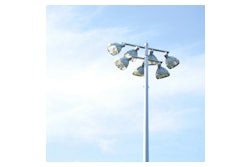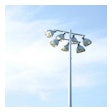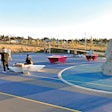Copyright 2014 Journal Sentinel Inc.
Milwaukee Journal Sentinel (Wisconsin)
Organic weed killing is not a usual topic of conversation in the midst of a harsh winter with frequent double digit subzero windchill factors unless you are members of a park board with instructions from village trustees to explore alternatives to chemical weed killers.
The Park and Recreation Board last week agreed to recommend to the Village Board a pilot project where organic weed killer would be applied to a 1-acre parcel of land located near the entrance to the Village Park. The purpose of the project, according to park officials, is to establish whether organic weed killing can be a cost effective alternative to chemical weed killers.
While the pilot project is being conducted, which may be as a long as three years, the village will continue its policy of using chemical weed killers in selected areas such as athletic fields, near public buildings and other selected locations.
A combination of corn gluten and worm castings will be used to organically control weeds by reviving and improving the soil and turf on the one acre plot, according to Adrian Ramirez and Steve Finley. Using the organic substances to improve the soil and turf, along with appropriate maintenance, will allow grass to grow thick enough to choke out weeds, he explained.
They represent the two companies - ENCAP of Madison and IGI of Appleton - who will be conducting the pilot project for the village. They estimated the cost for rehabilitating the soil and controlling the weeds on the one acre tract at about $1,330.
Park officials acknowledged during the Jan. 21 meeting that organic weed killing costs are about four times higher than what it costs to apply chemical weed killer to a roughly 1-acre plot.
However, Park and Recreation Board Chairman Robert Fourness and Park and Recreation Director Sasha Snapp are hoping the village can eventually save money by reducing the need to purchase the chemicals and other lawn care costs.
Park Board members suggested converting from chemical to organic weed killer is a potential "lifestyle" change that will improve the overall environment of the parks.
Snapp said that a recent online survey of village residents indicated "people in the village hate weeds but they hate chemicals just as much."
The cost of chemical applications, along with the perception that they pose health risks, are among the reasons the village had adopted a policy limiting its weed killing, according to village officials.
The only areas where the village sprays for weeds is athletic fields, green spaces around public buildings, and some other selected areas. As a general rule, the village does not spray for weeds in its parks, according to Snapp.
About two years ago, residents of the Coldwater Creek subdivision asked the village to spray the subdivision park dandelions. Initially, the village board said no.
However, the village reversed its position when residents of the subdivision offered to pay for the weed killing application.
The debate whether to allow the weed killing in the subdivision park prompted some village trustees to ask the park and recreation board and staff to explore what alternatives to chemicals are available.
Copyright 2014 Journal Sentinel, All Rights Reserved.
Terms and Conditions Privacy Policy































